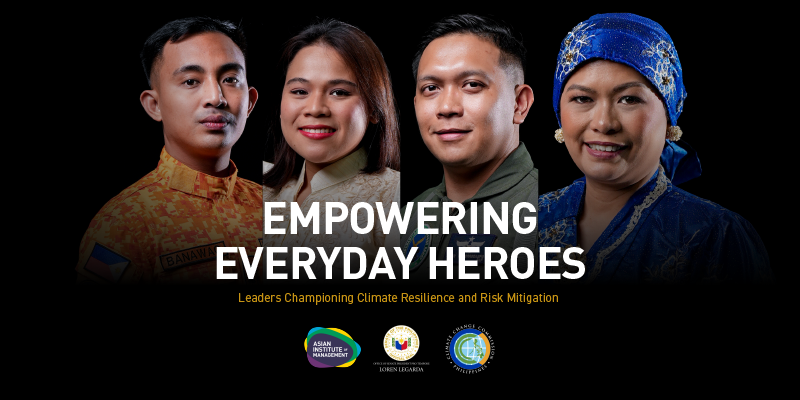Executive Master in Disaster Risk and Crisis Management Scholars Pursue Climate Resilience Initiatives
MAKATI CITY, PHILIPPINES – Not all heroes wear capes. Some wear uniforms. Others don lab coats, safety vests, or even civilian attire. What unites them is a shared commitment to protecting lives, managing risks, and responding to crises when it matters most.
The Executive Master in Disaster Risk and Crisis Management (EMDRCM) program of the Asian Institute of Management (AIM) program was built for professionals like these—modern-day heroes seeking to advance their expertise in resilience, preparedness, and crisis leadership.
Recipients of the Sustainable Leadership Learning for Climate and Disaster Risk Reduction (SLL-CDRR) full scholarship are empowered to pursue this degree with support from key stakeholders, including the Climate Change Commission (CCC) and the Office of Philippine Senator Loren Legarda.

For SLL-CDRR scholar Major Kevin Torrecampo of the Philippine Air Force, the education and scholarship he received have elevated his leadership and impact in national defense. As a Safety Officer and Instructor Pilot, he trains pilots and ensures flight safety in support of humanitarian disaster response, security operations, and national defense.
“Preparedness isn’t just a protocol,” he said. “It’s the key to saving lives and protecting communities.”

Similarly, Fire Safety Inspector Kevin Banawag credits the scholarship and the EMDRCM program for refining his approach to community risk assessments and fire prevention campaigns. A native of Pangasinan, his work has significantly reduced fire incidents in vulnerable areas within the municipality of Bolinao, where he serves as the Municipal Fire Marshal.
“Disaster preparedness is essential in our work because we are among the frontliners of disaster management,” he emphasized. “Through preparation, we ensure the continuous development of sustainable fire safety and response plans.”

The SLL-CDRR cohort spans a wide range of sectors—from frontline emergency response to science, agriculture, and local governance. Engineer Mari-Andylene Quintia of the Philippine Institute of Volcanology and Seismology (PHIVOLCS), brings more than courage to the table—she brings skills in evidence-based planning and strategic risk communication. As a science research specialist and the resident volcanologist at the Kanlaon Observatory, Engr. Quintia serves vulnerable areas of Negros Occidental that would be most affected by seismic activity.
“We manage the 24/7 operations of the Kanlaon Observatory,” she shares. “In addition to conducting frontline services such as Information and Education Campaigns, we also coordinate with partner agencies as needed.”

In the field of agriculture, climate change continues to threaten food security. SLL-CDRR scholarship recipient Department of Agriculture – Region IX Engr. Zaida Salim has seen these impacts firsthand. A licensed agricultural engineer, she emphasizes how the EMDRCM program has enriched her work. As the region’s Disaster Risk Reduction Management Alternate Focal, she capacitates and assists local government partners in conducting damage and loss assessments.
“In the agriculture sector, preparedness involves proactive measures to mitigate risks from threats like pests, diseases, climate change, and disasters.” She adds, “This ensures food security and livelihood resilience.”
All four professionals describe their experience in the EMDRCM program as transformative—both professionally and personally. With the advent of the SLL-CDRR scholarship program, they have begun to advance their careers and the communities they serve with confidence and leadership.
Inspired by our real-life heroes? Learn how you can advance your impact through the Executive Master in Disaster Risk and Crisis Management—with full scholarships available under the Sustainable Leadership Learning for Climate and Disaster Risk Reduction (SLL-CDRR) initiative.


